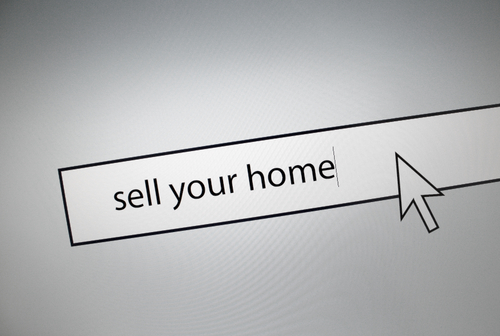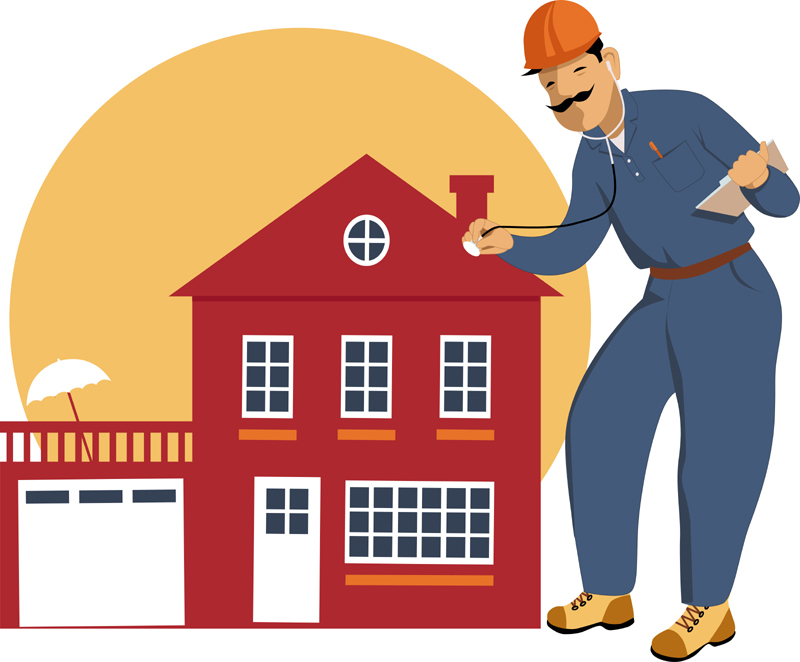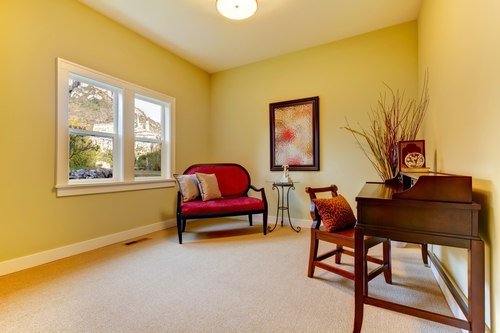Home Selling Tips: A Sellers Library
This library of reference material will provide you with a wealth of home selling tips and info to prepare your home for sale.
Home Sellers Guide
The Costliest Mistake in Selling Your Home

Choose the right real estate agent to market your home. You must rely on your agent for accurate comparative sales statistics and pricing guidance. A good agent provides the facts to help you avoid the worst mistake you can make: overpricing. Alas, not all agents are good! The right asking price is critical to the success of your sale.
Many sellers price their property incorrectly because they choose to list their property with the agent who quotes them the highest asking price. With some highly optimistic agents this may be an honest onetime mistake. Sadly, with many it is instead a common and deceptive practice which insiders call "Buying the Listing". Do not fall into this trap of listening only to what you want to hear! What Happens When You Price Too High?
The wrong buyers see your property when it is new to the market and "hot". Buyers compare price, features, location, and condition of all the homes they inspect. If yours is priced too high, it will not compare favorably with others the buyers look at. Your competition has more to offer for the money.
Your home will not appraise at or near the asking price. Most buyers require mortgage financing and that means an appraisal by the lender. Appraisers look at similar homes in your neighborhood that have sold in the last six months. If you have a 3 bedroom ranch, it is not equivalent to a 4 bedroom colonial.
No matter how much you love your house, the appraiser will not see it with the same nostalgia. Your buyer can't get a mortgage. If you price your house at $100,000 but it is worth only $90,000, banks will not lend the money for a mortgage. Even if the buyer wants to pay $100,000, he can't complete the transaction because the bank won't okay the deal. You eventually sell for less than market value.
Picture this scenario - After three months at your too-high price and no action, your real estate agent persuades you to lower the price. (This is the same agent who was so optimistic in the beginning!) By this time your house is no longer a fresh, new listing. Buyers who might have been interested three months ago at the current price have all found other properties.
New buyers wonder what's wrong with your house. Why has it been on the market for so long? What flaws did others see that made them pass up your offering? After three more months you lower your price again. Eventually a bargain hunter comes along and offers you bottom dollar. There are statistics to back up this phenomenon when you price yourself out of the market.
Continue reading our home sellers guide below for information on pricing, renos, faster sales and common pitfalls!
How To Price Correctly

It is absolutely imperative to find a real estate agent who is an expert in selling real estate in California, who will tell you the truth about the market value of your property rather than the high price you want to hear. In choosing the wrong agent you waste precious time, experience anger and frustration over the lack of activity, and eventually settle for less money on your sale. To be fully informed when you pick a price, actually visit homes that you feel are comparable in size and location to your home.
Sunday open houses are a good source of information. Be honest with yourself and objective when you tour the properties. If the condition is better and the house has more features than yours, it has a higher market value. Don't cavalierly pick the agent who quotes you the highest sales price. Carefully assess the homes that are your competition.
Remember, if there are four tri-levels just like yours already for sale in your subdivision and only one similar house has sold in the last year--the market is saturated with a four-year supply of tri-levels. When you add yours, it becomes a five-year supply. If you need to sell you must price realistically. If you just want a lot of people walking through admiring your wallpaper, go with the agent who is most optimistic!
To Fix or Not To Fix When Readying it For Sale?

That is the question all homeowners should ask themselves when they consider selling their home.
The first item on the fix-it list: clear the clutter! If your closets, attic, basement, garage, and other storage areas appear neat, half-full and organized, your house will seem to have more storage space. To accomplish the clutter - clearing task, empty the house, hold a garage sale, and use the profits to help offset the next set of fix-it priorities.
Check your house for "curb appeal". The exterior is the first impression a prospective buyer has of your home. Make it as inviting as you can. Think of it as outside decorating. Clean (or paint, if necessary) the exterior, re-sod brown spots and crab grass, mow the lawn, pull weeds, remove dead trees or plants, and trim the shrubs.
Flowers give warmth and personality to a home. Plant them tastefully in pots or beds at the entrance, on decks and around patios. If it isn't flower season, at least clean the beds, remove the dead leaves, and cover the ground with fresh wood chips or other clean looking mulch.
If you have a limited budget, make the most of it. Put the money where it is most obviously needed and the return the greatest and most visible. Here are more budget-friendly home renos:
Fix Little Things
Take care of the little obvious things: fix leaking faucets, stop running toilets, replace broken windows, kill pet or mildew odors, repair holes in screens, remove mildew from tile, and re-caulk around bathtubs and sinks. Walk around; look at your house with a prospective buyer's eyes. Small things tell buyers whether or not a house has been maintained.
Paint it!
A coat of light-colored, neutral paint--white or off-white--will make your home's interior look crisper, cleaner, and also larger. Many buyers may not be able to imagine their sofa in your décor. White interiors work for the greatest number of people without their having to redecorate immediately. If you just moved, would you want to redo every room?
Your Carpeting
If the carpet is in reasonable condition, have it shampooed. If it is worn, threadbare or a non-neutral color, consider replacing it with beige or gray. You do not need to purchase the best quality money can buy. Lifetime wear is not required. You want it to look great now.
Neutral walls and carpet do not offend anyone. Almost all furnishings look good with them. Rental property managers know this and have been doing it for years. Stick to a neutral palette to opitmize interest from potential buyers.
Professional Inspection
Consider having your house inspected by qualified inspector. Safety- and health-related items, such as radon and electrical problems could kill a sale if not properly attended to. It is much better to fix these items on your own time schedule and financial terms than hurriedly during a contract negotiation. Roof leaks, even if inactive, are also deal breakers.
What else do you fix amongst the inspector's flagged items? Unless you can realistically get money back, fix only the problems with major systems. You want to keep your home's selling price as low as possible to increase the pool of buyers.
Do not undertake any major remodeling in preparation for sale. It places more limitations on the size of your buyer pool. Tastes vary, and some people will dislike the results of your efforts. You will have to raise your selling price to reflect your fix-up investment, thereby pricing your home out of the range of other potential buyers.
A neutral color scheme in a house that sparkles brings you the highest return in the shortest time.
6 Tips For A Faster Sale

One.
Carefully inspect your front door and the area around it. Clean any glass and remove all cobwebs and traces of insects. Give your door a fresh coat of paint. Wash your mail box. Keep the porch swept and place an attractive mat in front of the door for people to wipe their feet.
Two.
Pet odors kill many sales! Make sure your pets are not present during showings and eliminate all smells associated with your cat or dog. Be especially aware of cat box odors and animal urine in carpeting. Carpeted basements, which are sometimes slightly damp, can be a real turn-off. Install an electonic HEPA filter and remove or replace carpeting if necessary. Have someone with a VERY good sense of smell perform a "sniff" test in every nook and cranny before you show your home to perspective buyers. You may not be able to smell odors that a stranger can!
Three.
Make sure your windows sparkle. Open all blinds and curtains during showings. A light and bright home is much more appealing to buyers than a dark and dismal cave. Everyone feels better when the sun shines in. If it is a gloomy day, turn on lights. When your home is for sale, it's not the time to be overly concerned about extra use of electricity.
Four.
Make sure the outside of your home is clean and neat. Cut back bushes that block windows. Plant flowers in spring and summer. Rake leaves, sweep walks and driveways, and keep snow shoveled. Some prospective buyers won't even get out of the car to look inside if they don't find the outside appealing.
Five.
Always put out fresh towels in your bathrooms before showings. Attack and destroy mold and mildew around tubs and in showers. Remove clutter from bathroom counters. Nobody likes grungy bathrooms!
Six.
Remove clutter from attics, garages, basements before you put your home on the market. It's a great time to get rid of all that junk you've been hauling around for years. Make sure all stairs are clear and well lighted. Put new bulbs in the attic and basement. Let your prospective buyers know you aren't hiding anything, and you have LOTS of storage space.
Selling Your Home – DIY or Hire a Realtor?
When a home owner decides to sell FSBO (For Sale By Owner) instead of hiring a REALTOR®, the reason is usually to avoid paying a real estate commission.
While the "do-it-yourself" approach can be successful for a hot property in a hot market, you might want to think about what’s required to sell your home yourself before you decide to follow that route. In many cases any savings in dollars are quickly lost in expending your time and energy. There’s a lot more involved than sticking a sign in the yard and an ad in the paper!
If you’re thinking the For Sale By Owner method is for you, three of the most common problems you’ll face in achieving a successful sale are:
- limited market exposure – you can’t put your property in the MLS and consequently you lose a large number of potential buyers.
- attracting serious, qualified buyers – often people who visit FSBO properties are either just ‘kicking tires’ or they are bargain hunting.
Your FSBO Skills - Are They Up To The Task?
As your own agent, you'll have to:
- Price your home properly
- Prepare, schedule and run your ads and produce handouts
- Take calls, screen inquiries, schedule appointments
- Pre-qualify potential buyers by asking the right questions
- Stay home to show your property at looker’s convenience
- Hold open houses, negotiate offers and counter offers
- Make sure buyers are qualified before accepting
- Understand and prepare disclosures
- Follow up with the buyer’s mortgage application and approval
- Coordinate inspections and appraisal
- Collect all buyer and seller legal documents
Serving as your own agent is a bad idea if you're in a hurry to sell, you have a hard time handling tension, complications and rejection, you don’t price your home properly or you're uncomfortable negotiating.
Pricing Your Home - You Need A REALTOR® To Get It Right!

An over priced home will not sell in a timely fashion, and you’ll end up lowering the price anyway. An under priced home causes potential buyers to think there’s something wrong with it!
BEWARE of online automated appraisal programs. They crunch numbers, use averages, and can’t take into account, for example, curb appeal, extraordinary condition, the fact that yours is the best lot on the street.
While a REALTOR® looks at objective factors just as an appraiser does (square footage, number of bedrooms), a REALTOR® will also take into account the special features of your home. A REALTOR® compares your home to other homes on the market. An appraiser compares only to properties that have sold and closed – in some cases many months ago. It is likely your REALTOR® has been inside every property in your area on the market. An appraiser has seen only the homes he was hired to appraise. Who has the better basis for comparison?
Common Pitfalls - Of Selling Without A REALTOR®
A major stumbling block in selling your home yourself is your emotional attachment to it and your familiarity with it. You overlook its flaws because you love the huge dogwood tree in the backyard or whatever.
Your REALTOR® has no such emotional attachment and can help you immensely in giving you information about what you should do to prepare your home for sale. REALTORS® know what’s important to buyers and what’s not so important. They can help you prioritize what you must do, should do, & don’t need to bother with in getting the house ready for market.
Another common difficulty of FSBO selling is the failure to properly identify in writing items not included in the sale. Generally, anything permanently fixed to the house stays after selling. Exclusions (items not included with the sale) can be a cause of contention for buyers when those items are not specified ahead of time. Your REALTOR® will help you think this through.
Showing and Selling - Time Is Money!
A few of the things your REALTOR® does to save you time:
- Handles telephone and email inquiries about your property. You don’t have to be always by a phone whether it’s convenient or not.
- Screens potential buyers to gauge their level of interest and financial ability to purchase your home. You don’t have to know the ‘right’ questions to ask (which they most likely wouldn’t answer for you anyway since you’re the seller!)
- Schedules showing appointments and follows up for feedback. You don’t have to make those follow up calls which take time and might yield comments you don’t want to hear.
- Brings buyers to see your home or arranges with other REALTORS® to bring buyers to see your home. You don’t have to be present at inconvenient times.
- Arranges for access for inspectors and appraisers. You don’t have to be present at inconvenient times.
Do you have the time to handle all of the above – and more - without A REALTOR®?
Legalities and Paperwork - It Can Get Sticky for FSBOs
Disclosures, disclosures, disclosures.
You may be obligated to disclose problems that could affect the property's value or desirability. In most states, it is illegal to fraudulently conceal major physical defects in your property such as a basement that floods in heavy rains. In some states, a less stringent seller disclosure may be used when buying the property from an estate.
In many states, a separate lead paint disclosure is also required, and in some areas, there are local ordinances pertaining to disclosures.
Do you know what your state and local laws are? Do you have the correct forms? Do you know how to properly execute the forms? Do you know when disclosures are presented?
Your REALTOR® does!

Lauren Spencer.
If you have any questions or would like more home buying & selling tips and advice, contact Lauren Spencer, Coldwell Banker Realtor at 1-831-662-6522 or Toll Free: 1-800-226-4717.
Join our site for free and you'll have exclusive access to daily updated listings, that can help you find the perfect fit and your next dream home—from the comfort of your current home!
Fill out the form below for your free home evaluation:
*Your information will never be shared with any third party.
Back To Home Selling Tips: A Sellers Library
